Local foodies share their favourite Iftar ideas and tips
During the holy month of Ramadan, Iftar forms a significant part of each day as it’s the meal that breaks the daily fast at the end of the day. Once the fast has been broken, often with a small bite and a glass of water, prayers begin and only after these will a main meal be eaten. We chatted to a few personalities in the local food industry to find out what they’re cooking and their advice for the best Iftar.
Razeena Palekar, food blogger and recipe developer
1. What are some of your favourite dishes to make for Iftar?
Although I happily indulge in the universal Iftar staples of samoosas, pies and spring rolls, my favourite dishes take on a little less traditional form. Home-made fried chicken is one of my ultimate meals, and I make it at least twice every Ramadan. Another big favourite is a Burmese dish called khowse, which the family will happily skip the savouries to enjoy. I also love putting together meze platters – I usually cheat a little by using readymade Woolies condiments and bakes. Mezes are not only fun to prepare, they’re deceptively filling and great to share, too.
2. Do you have a preparation strategy for Iftar?
Since I work full time, I try to do as much as I can the night before, especially with more labour-intensive tasks like cleaning protein or kneading dough. Prepping marinades in advance also takes the guessing game out of seasoning while fasting, which is a whole challenge of its own! Because a lot of my food content is centred around what actually goes on my table, I always have a weekly meal plan ready, Ramadan or not. This is particularly helpful in the fasting month, and helps me to rotate which “savoury” will accompany my main meal or if I am skipping cooking altogether and binging on three samoosa variations! Another notable preparation strategy is the use of my air-fryer. Aside from being easier to clean, the massive convenience of just popping the items in and not having to check them every minute is ground-breaking and frees up a lot of time before the pre-Iftar rush.
3. What’s your favourite thing about Iftar? Do you have any family traditions?
As part of our religious observance, we break our fast with dates and water before digging into all the good stuff. Fasting isn’t easy, especially for snackers and hourly tea-drinkers like me. But trusting that the time of Iftar will arrive is a spiritual reward of its own. That first bite after breaking the fast is so satisfying, that even if I was craving a hundred different things all day, I am already content. Things have been a little different since the pandemic, but spending Iftar with extended family and friends is one of the great experiences of the month which I hope we can revive soon!
Saadiyah Hendricks, content creator, founder of Sadie’s Bubble of Yum
1. What are some of your favourite dishes to make for Iftar?
Iftar meals are quite mood dependent. I find myself making healthier meals in the first week with the energy and objective to improve our eating, but by week two it’s a comfort food fest, from indulgent casseroles to towering toasted sandwiches. However, a staple starter for Iftar is always a hearty vegetable soup.
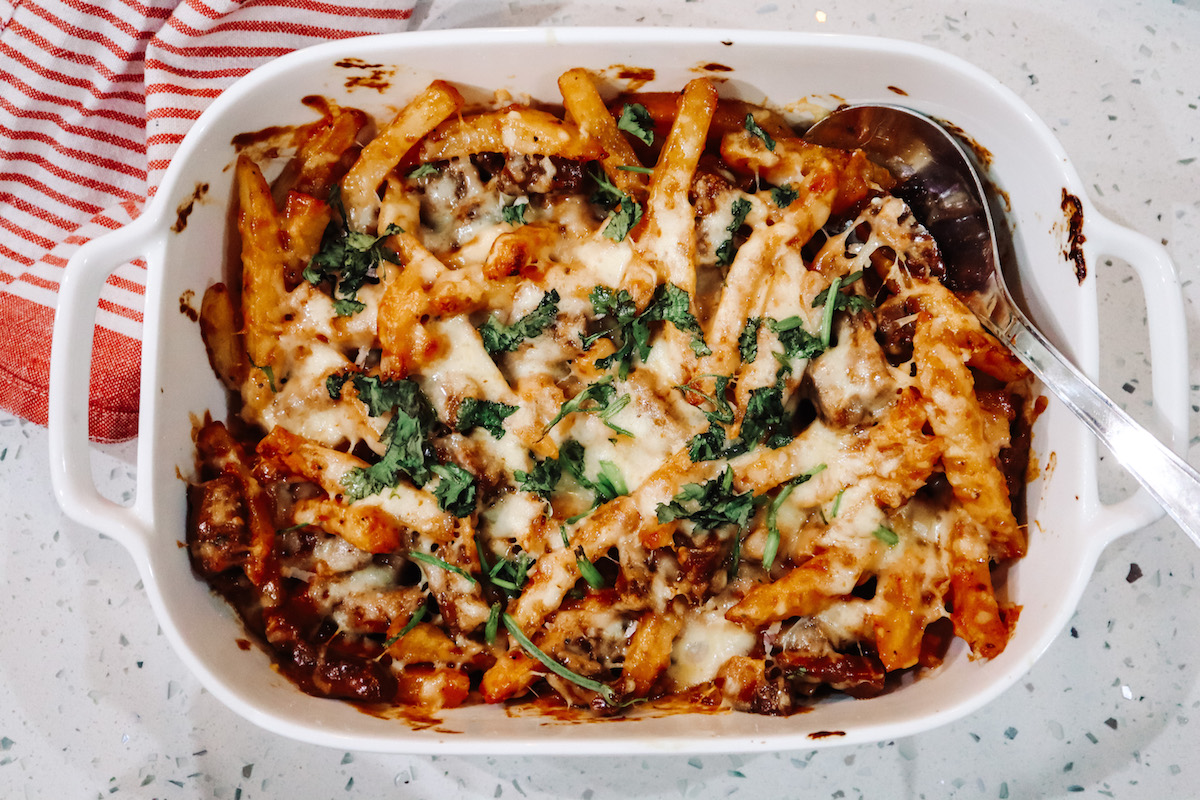
2. What cooking advice do you have for Iftar?
Doubling your cooking, then freezing the other half, will be your saviour on those manic or low-energy days. This has even become part of a family tradition for our family just before Ramadan, preparing huge pots of soup, which are then perfectly portioned and frozen for the daily Iftar starter.
Mariam Harris, founder of Cooked Inc.
1. What are your favourite dishes to make for Iftar?
Soup is a must when breaking our fast. It’s the perfect vehicle for veggies, water and nutrients. Everything you need to keep your immune system strong. A classic split pea, barley and vegetable soup can always be found on our tables. Use grass-fed beef bones to make a rich, nutritious base for your soup.
Asma Mohamed, recipe developer and founder of A Tale of Sauce and Spice
1. What are some of your favourite dishes to make for iftar?
Cheese samoosas are a must on our Iftar table. We also have chicken spring rolls, shikh kebabs, pies and mince samoosas.
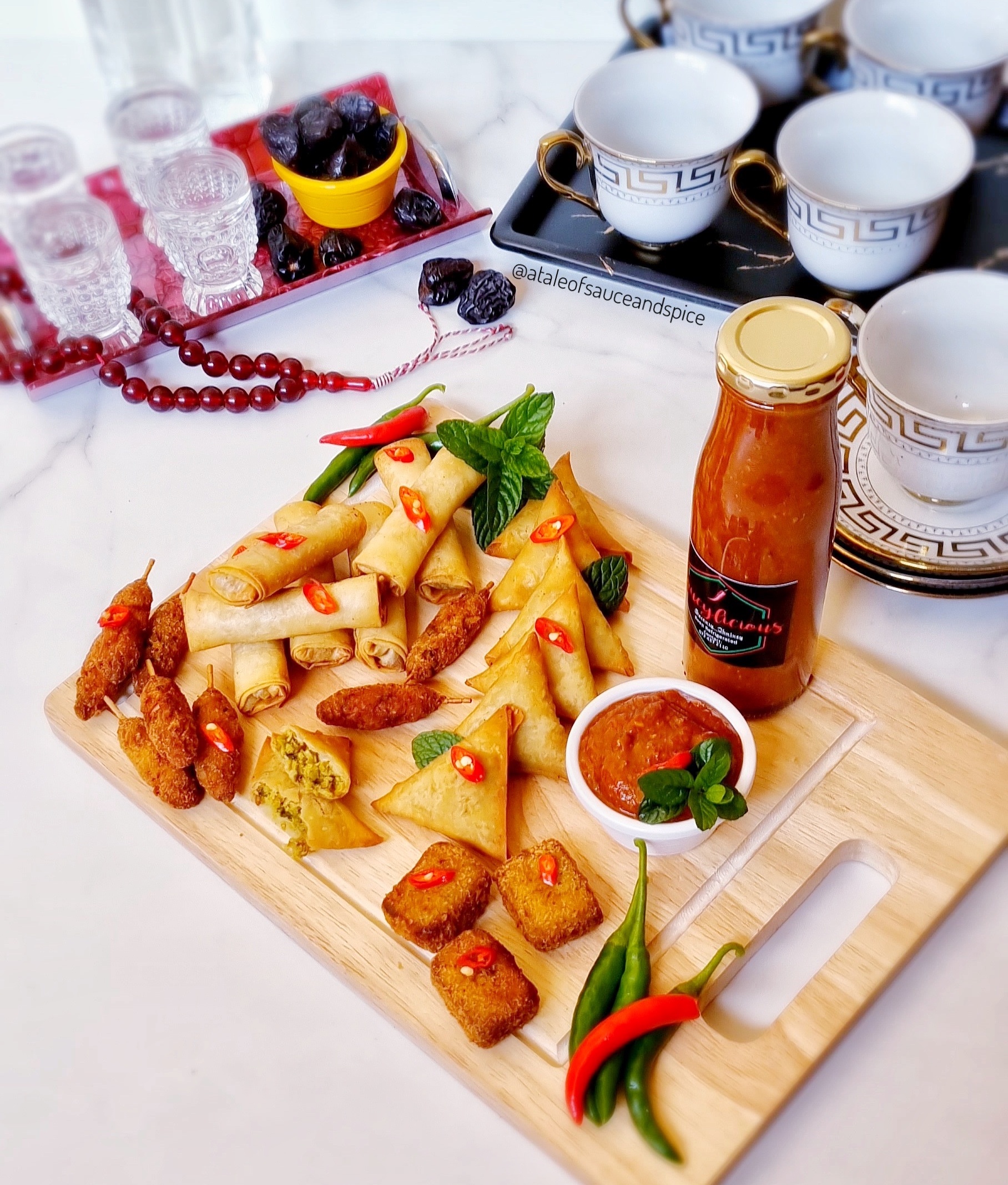
2. Do you have a preparation strategy for Iftar?
I usually make similar dishes every year that I’ve cooked often, so through experience I know the amount of ingredients in each recipe so not being able to taste is not a hindrance.
3. What is your favourite thing about Iftar? Do you have any family traditions?
Our family tradition is I get my prep done about half an hour or so before Iftar so we can sit together and pray as one before breaking the fast.
Fatima Sydow, cookbook author
1. What is your favourite savoury during Ramadan?
My favourite savoury during the month of Ramadan will always be a samoosa, that first bite of the crispy delicate crunch of the triangle folded samoosa leaves filled with the spicy filling never disappoint. It's the first savoury everyone reaches for. My weakness!
2. What are some of your favourite food memories from Ramadan?
My most favourite memories of Ramadan growing up would start a few days before the beginning of Ramadan. My parents would take us along to the shops and markets and the ingredients would be very different from any other time of the year – lots of split peas and soup vegetables, pea flour, for example. The first day would be so exciting as me, my four sisters and my brother would all get turns to help in the kitchen making assorted boeka treats, fritters, daltjies, samoosas, pancakes. We would make quite big amounts because we would then take walks to our neighbours, family and friends’ houses, carrying these treats on side plates, nicely covered. We would then also return with treats from them too. On the fifteenth day of fasting my late mother, Aunty Wasiela, would always make a big pot of boeber, a sweet milky dessert, and again we would share it far and wide. Ultimately, the selfless sharing that happens in this auspicious month is one of the things that makes Ramadan so very special and memorable.
Naqiyah Mayat, cookbook author and entrepreneur
1. What are some examples of the savouries you serve for Iftar?
“Savouries” have become more a cultural inclusion than a traditional one. We are meant to break our fast with zam zam (holy water) and a date, followed by the prayer at sunset. Most people refrain from eating oily or fried food and prefer to follow the Middle Eastern customs of having bagels with labneh and dukkah. Culturally, South Africans love baked pies or samoosas at the time of breaking fast. I prefer a variation on our table.
2. Your chilli bites are famous, but could you tell me about another of your favourite savouries? What’s the secret to getting it right?
Our children love cheese samoosas and the trick to making sure that they don't burst when frying is to add the frozen samoosas to cold oil and allow the oil to heat up while frying the samoosa. I don't know why, but this works. Your samoosas don't bubble and the filling doesn't burst out. If you’re opting to air-fry or bake samoosas, simply brush them very lightly with oil.
3. What advice do you have for preparing Iftar?
A time-saving tip – and this avoids being in the kitchen at the time of breaking the fast – is to fry your savouries and leave them on a tray lined with baking paper on your oven’s lowest setting. When you're done with prayer, simply plate your savouries.
Get Naqiyah's recipe for chilli bites.
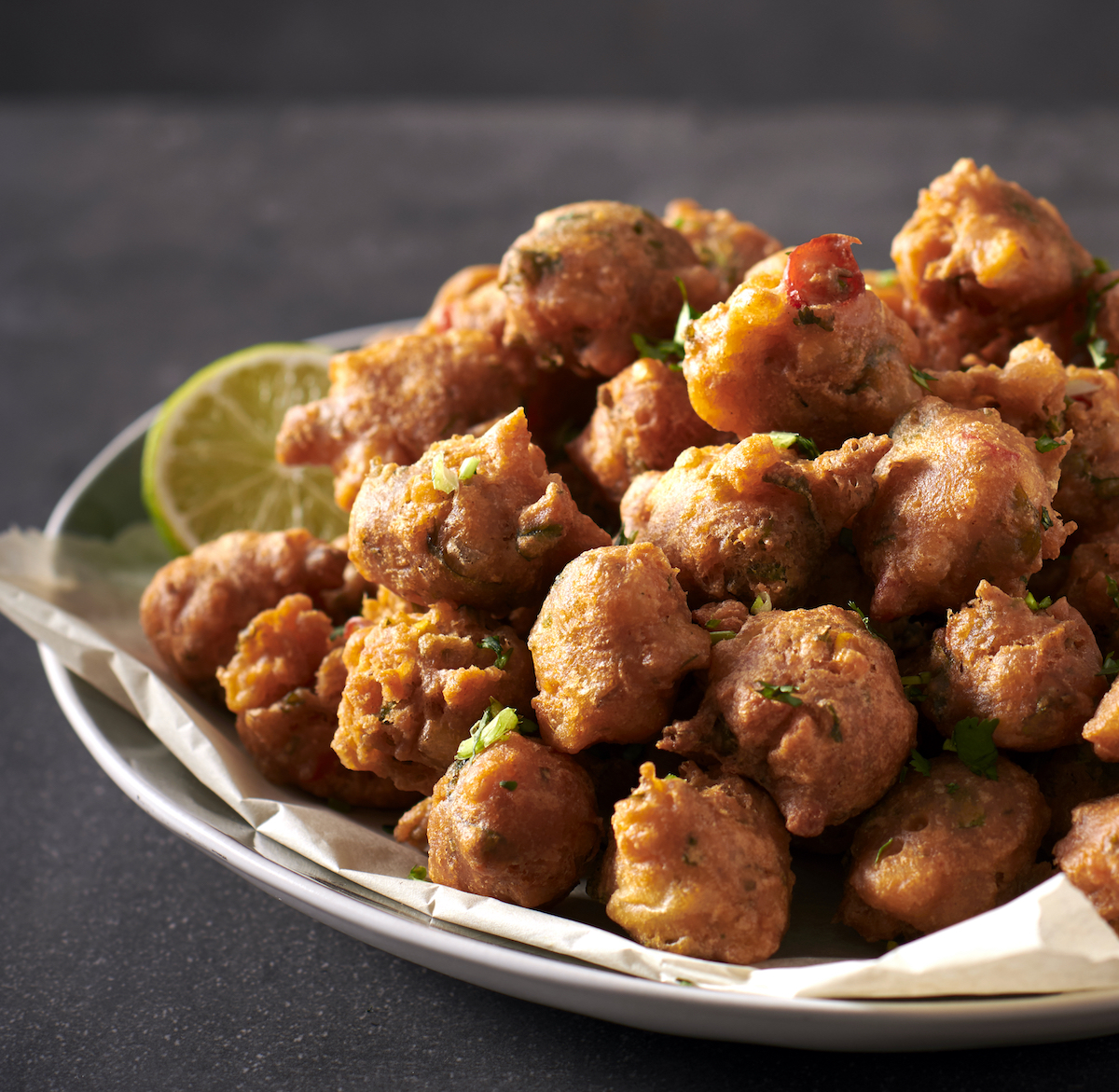
Shaa'ista Kathree, digital creator
1. What are some of your favourite dishes to make for Iftar?
My favourite dishes are ones that are fresh and wholesome and gives your body the right fuel after a day of fasting. Salads and wholesome soups are my favourite. I love trying new ways with veggies in Ramadan in a bid to get in as much nutritious foods as we can.
2. Do you have a general strategy for preparation for Iftar?
I don’t meal prep but I do plan my menu so that it requires fewer visits to the shops. Although I try and prep quick meals, I do tend to enjoy spending more time experimenting in the kitchen during Ramadan. When it comes to cooking, I use less spice during Ramadan because empty tummies are far more sensitive and better to be safe than sorry, when you can’t taste whilst cooking. I add salt, and additional spices to meals just after we’ve broken our fast. Traditionally the fast is broken with dates and water, giving you a bit of time to adjust seasonings before the family sits down to enjoy the meal.
Fayruza Abrahams, cooking class host and cookbook author
Do you have a signature savoury that you are famous for?
One of my favourite savouries to make is my tempura chilli bites – two of my favourite snacks combined into one delectable morsel. A fusion of the ever popular Cape Malay chili bite (daltjies), and crispy, exotic tempura. It's basically a selection of vegetables dipped and smothered in a chilli bite batter, deep fried till crispy. It's wheat-free and a clever way to use up bits and pieces of leftover vegetables. It's made with chickpea flour, kale and or spinach, spices, egg, onion, garlic and ginger.
Do you have any tips for getting them perfect?
Always use the freshest of produce and spices. Coat all vegetables in a light dusting of corn starch before dipping it into the batter. This will ensure that the batter sticks to the veg, and will also ensure that your snack is very crispy. Chill the batter for at least 15 minutes in the fridge before using it. Devour these snacks as soon as possible as they are best eaten hot, dipped into your favourite chutney or atchars. The egg can be omitted for a vegan option.
I also prepare banana wraps or fritters every day, without fail.
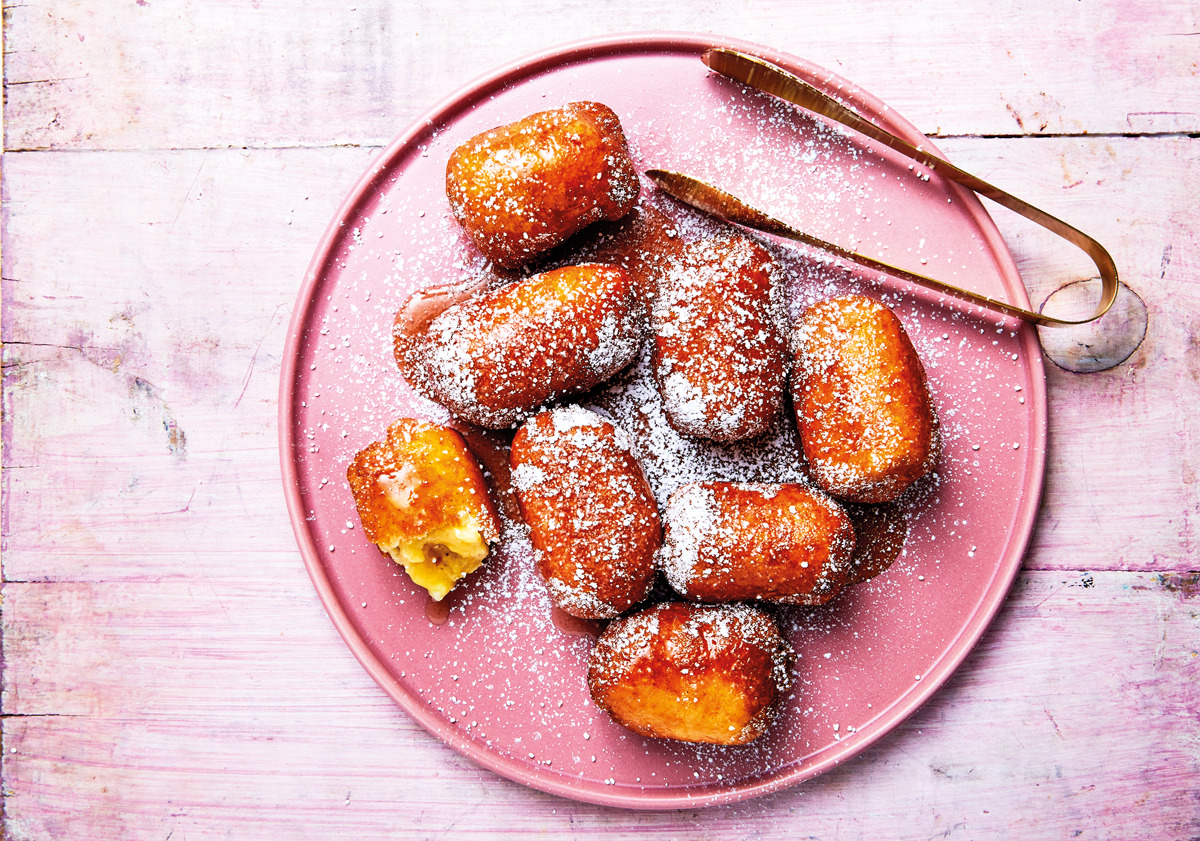
Get the recipe for Fayruza's banana fritters.
You grew up in the Bo-Kaap, can you tell me what Ramadan was like in the Bo-Kaap, when you were growing up?
The month of Ramadan in the Bo-Kaap was always met with lots of anticipation and excitement!
As kids we diligently upheld the tradition of delivering sweet treats and savouries from our home to the rest of our neighbours in our street. About an hour prior to Iftaar, we would don our traditional dresses, thobes, headscarves and fezzes, and proudly make our deliveries from door to door.
The neighbours would reciprocate by filling our empty plates in return with whatever they had prepared on that day. Every night and every meal was a celebration of family, community and glorious food.
My father however, never failed to remind us of the reasons WHY we were fasting, and more importantly to remember the families that were not as fortunate as we were. He always reminded us that we should always aim to give more than we received.
How will you keep the traditions alive this year, with the threat of COVID still around?
It would appear that we will be experiencing Ramadan for the 2nd consecutive year during Lockdown soon. Last year we were under strict, Level 5 regulations, and it was extremely sad to not visit family, not see my Mom in particular, and not enjoy the festivities that the month of Ramadan always brought.
This year I aim to prepare some snacks and savouries prior to the onset of the holy month and distribute to neighbours, family and friends to enjoy at their own leisure. We might be able to manage getting together for Iftaar in smaller groups from time to time if regulations allow. There will however, still not be any door to door delivery of treats at all.
For recipes, check out our recipe guide for Ramadan and Eid.


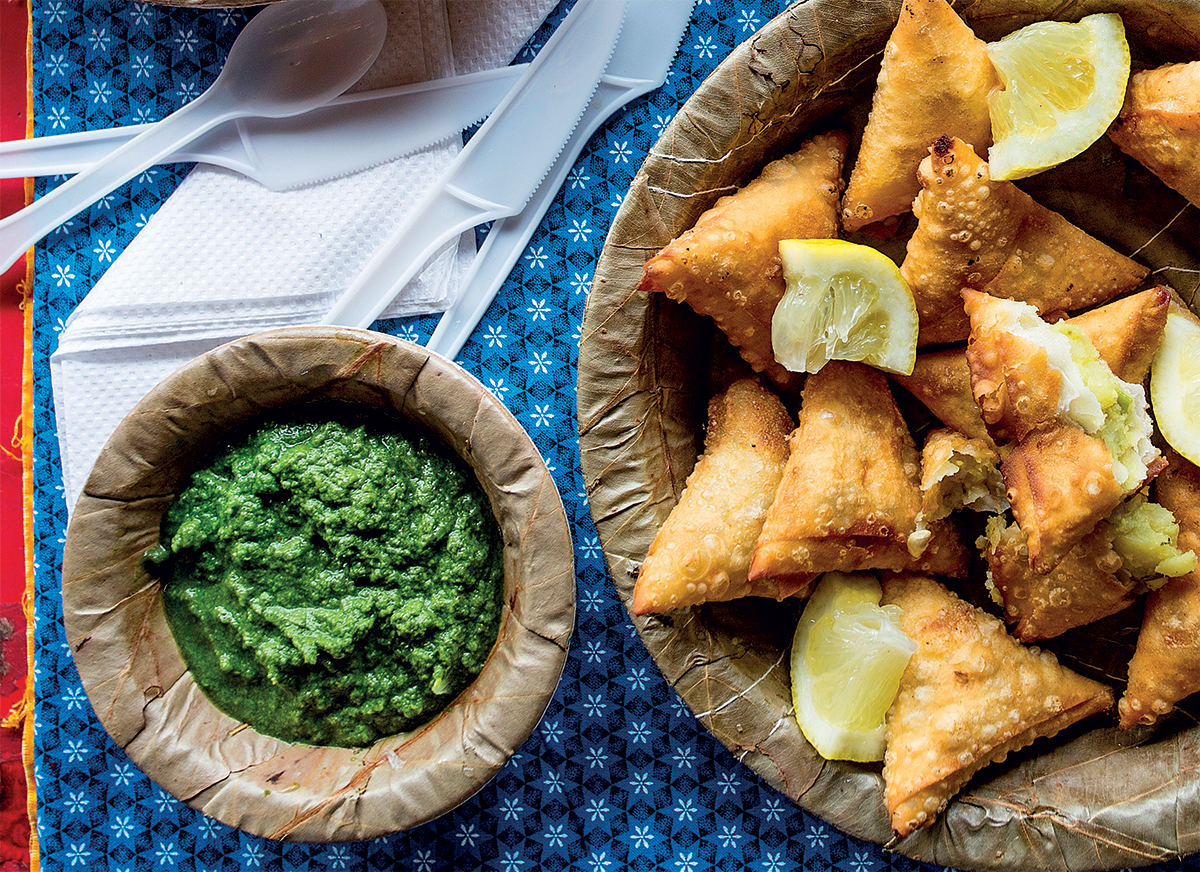


Comments